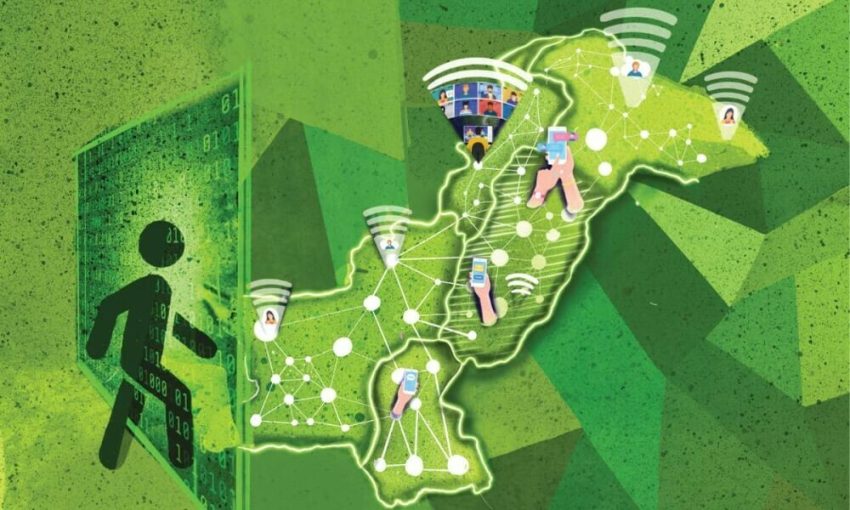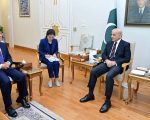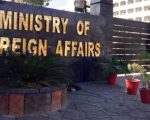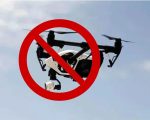Pakistan, a country full of talent, hardworking people, and immense potential, continues to struggle with a weakly documented and poorly digitized economy. While the rest of the world is moving fast toward digital payments, online commerce, and data driven governance, Pakistan is still largely cash based, undocumented, and informal in its economic activities. If we want to grow as a country, reduce corruption, improve tax collection, and provide better services to our citizens, we must accelerate our journey toward a documented and digitized economy.
- A documented economy, is one where transactions, income, expenses, and jobs are recorded officially. This includes registering a shop with FBR, issuing receipts, and declaring income for taxation.
- A digitized economy, uses mobile apps, portals, and online systems for payments and data. Examples include paying via Banking Apps for shopping online, or filing taxes online.
Why it matters:
- Only 5.2 million people filed tax returns in 2024 out of 245 million population.
- Informal economy is around 35% of GDP.
- Over 60% of transactions still happen in cash.
- Less than 30% of adults have active digital accounts.
- Around 1.3 million retailers are not registered with FBR despite earning taxable income.
- Less than 15% of SMEs have any form of digital record keeping.
- Pakistan’s tax to GDP ratio remains below 10%, among the lowest in South Asia.
- Only 2% of women in rural areas have access to digital financial services.
- Digital payment adoption in government collections is below 5%.
- Over 70% of land records in rural Pakistan are still undocumented or maintained manually. in 2024 out of 245 million population.
- Informal economy is around 35% of GDP.
- Over 60% of transactions still happen in cash.
- Less than 30% of adults have active digital accounts.
Daily Examples:
- Grocery store: Ali earns Rs. 500,000 monthly but doesn’t issue receipts or pay tax. If he installs a POS system, he can access bank loans and be part of formal economy. In 2024, less than 7% of small retailers in urban Pakistan used POS systems despite government incentives.
- Real estate: Amna buys property worth Rs. 2 crores but registers only Rs. 50 lakhs. Such under reporting harms the system. A recent FBR audit found nearly 65% of real estate deals under declared their actual transaction value.
- Street vendor: Rehan earns Rs. 70,000 monthly but is undocumented. A QR code and small tax scheme could bring him into the system. Pilot programs in Lahore and Peshawar showed 3,000+ street vendors added to the digital payment network in 2023 after being provided QR codes and training.
- Freelancer: Sara, a graphic designer in Sahiwal, earns over Rs. 100,000 per month from international clients. Since she uses private channels to receive funds, her income remains undocumented. With easier registration for digital freelancing platforms, her income could contribute to GDP figures and she could access credit.
- Truck operator: Yousaf runs a goods transport business in Faisalabad. He accepts only cash payments and has no digital record. If he uses e invoicing and digital payments, he becomes eligible for fuel subsidies, road tax discounts, and fleet insurance benefits now offered through NADRA linked systems. but doesn’t issue receipts or pay tax. If he installs a POS system, he can access bank loans and be part of formal economy.
How to Move Faster:
- Simplify tax filing via apps like Tax Asaan.
- Launch flat micro tax systems for small traders.
- Offer discounts or incentives to tax filers.
- Expand RAAST to all banks and wallets.
- Promote QR payments in markets and stalls.
- Link subsidies and loans with documented businesses.
- Distribute government aid via verified accounts.
- Provide affordable POS systems to small shops.
- Teach digital payments in schools.
- Digitize land and property records.
- Enforce bank only transactions above Rs. 1 million.
- Use CNICs as digital economic IDs.
Learning from Others:
- India: UPI handles over 13 billion transactions/month as of mid-2024, covering peer to peer transfers, merchant payments, and utility bills. UPI now contributes over 50% of India’s retail digital payments volume. Government supported cashback schemes, especially for low-income users, boosted adoption.
- Turkey: Turkey has integrated its national ID with tax systems, business registration, and property ownership. Over 95% of land records are now digital. The government uses e invoicing and e ledgers to monitor business activity in real time.
- Brazil: Pix, their instant payment system, onboarded 140 million users within 3 years, including informal workers and small vendors, drastically reducing cash use.
- Rwanda: Over 90% of government to person (G2P) payments are digital. They’ve created a mobile ID linked tax system for micro merchants to pay small, flat taxes via phone. Digital cashback schemes are common.
Who Needs to Act:
- Government: Create simple registration portals, offer tax benefits, and run awareness campaigns. In 2024, only 18% of registered businesses accessed digital tax filing independently, showing a clear need for simplified platforms in Urdu and regional languages. Local governments can also set up mobile tax facilitation centers in markets and towns.
- Banks/Fintechs: Offer user friendly digital accounts and onboard users from bazaars and rural areas. Currently, over 55 million adults in Pakistan remain unbanked. Fintechs should develop mobile apps in local languages with voice support and simplified interfaces. Partnering with telecom companies can help onboard rural users rapidly.
- Citizens: Ask for receipts, prefer digital payments, and file returns even zero income ones. Only 1 in 10 salaried Pakistanis ask for official receipts. With greater awareness and civic responsibility, the public can push businesses to stay compliant and push the digital shift forward, offer tax benefits, and run awareness campaigns.
What Will Be the End Results?
When Pakistan becomes a fully documented and digitized economy, the benefits will be deep, wide, and long lasting for both the country and the common citizen.
For the General Public:
- Better Access to Loans: Once your income is recorded, banks are more willing to lend money. Small shopkeepers, freelancers, and vendors can get loans to grow their business or handle emergencies.
- Faster Government Services: Subsidies, pensions, and BISP payments will be directly credited into digital wallets, removing middlemen and delays.
- Lower Corruption: Every transaction is traceable in a digital system. This reduces bribery and misuse of public funds.
- Easier Documentation: You won’t need dozens of paper files. With a CNIC and digital record, you can apply for scholarships, passports, and licenses online.
- More Job Opportunities: Digitization promotes business growth, entrepreneurship, and attracts international companies to invest in Pakistan creating more jobs.
- Price Stability: A documented supply chain helps control hoarding and black marketing, keeping prices of essential goods fairer.
For the Country:
- Increased Tax Revenue: More documentation means more people pay taxes fairly. This expands the government’s development budget.
- Higher Credit Rating: Transparency improves investor confidence, attracting foreign direct investment (FDI).
- Stronger Institutions: Data driven governance allows better planning, targeted subsidies, and efficient resource allocation.
- Reduced Dependency on Loans: When domestic revenue increases, the country depends less on IMF and international lenders.
- Digital Exports Growth: Freelancing, e commerce, and IT services will scale rapidly with documented and traceable payment systems.
- Formalization of Economy: The 35% informal sector will shrink, bringing more businesses under regulation and protection.
What will happen?
In short, when Pakistan fully embraces a documented and digitized economy, life will improve for everyone from shopkeepers and students to farmers and freelancers. You’ll have easier access to loans, faster public services, and fairer prices in markets. Businesses will grow, jobs will increase, and corruption will go down. Government will have more funds for hospitals, roads, and schools not just debt repayments.
It means less paperwork, less fraud, and more trust in the system.
Think of it this way:
- Every digital payment is a step toward a stronger economy.
- Every receipt you ask for is a step toward fairness.
- Every tax return you file even if it’s zero is a step toward national growth.
Choose digital. Choose documentation. Choose a better Pakistan. Let’s choose a better future. A transparent, digitized, and documented economy ensures fairness, accountability, and growth. It begins with one decision at a time paying digitally, asking for receipts, and filing taxes.
Let’s move forward, together digitally, transparently, and responsibly.














